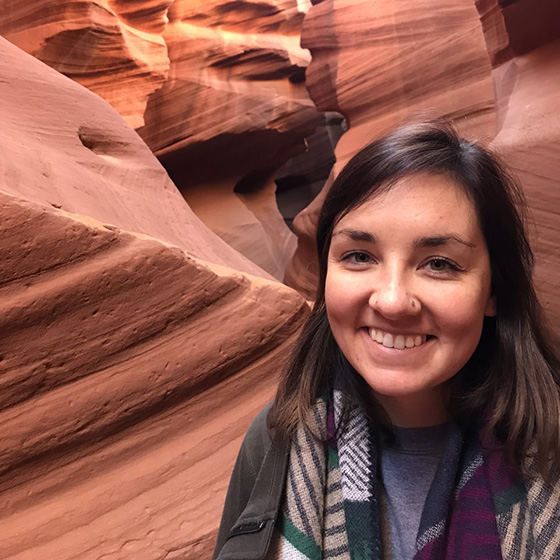Course Overview
“The function of sociology, as of every science, is to reveal that which is hidden.” – Pierre Bourdieu
Social Problems is an introductory-level sociology course in which we will try to understand and analyze social problems of the real world. Students will first learn how they can adopt a “sociological imagination,” or a sociological lens, through which they can view social phenomena. Students will learn how to question the taken-for-granted assumptions about and seemingly natural aspects of the world. Then, we will deeply engage with a variety of contemporary social problems, connecting each set of phenomena to real-world examples, including the COVID-19 pandemic, poverty and inequality, climate change, and racism. Through group activities, engaging discussions, guest speakers, and short personal essays that encourage students to grapple with their own personal experiences confronting social problems, students will gain an invaluable skill set to conceptualize and analyze past, present, and future social problems.
All students who successfully complete the course will receive a Certificate of Completion and have the opportunity to request a Syracuse University credit transcript.
Learning Objectives
At the end of the course, students will be able to:
- Explain and analyze social issues and phenomena through a sociological lens
- Understand major social contemporary problems
- Become familiar with major theories and discussions within the field of Sociology
- Think critically about social issues
Course Information
Course Prefix and Number: SOC 102
Format: On Campus (at Syracuse University)
Eligibility: Students must be of rising high school junior or senior status – or a 2026 high school graduate.
Credit: 3 credits
Grading: A-F
Cost:
- Residential: $5,595
- Commuter: $4,624
Program rates are subject to change and will be approved by the board of trustees. Discounts and scholarships are also available.
Program Information
Summer College – On Campus: Experience what college is really like: take a college-level course, live in a residence hall, have meals with friends in a dining hall, and participate in activities and events on campus.
Course Dates and Details
| Program | Course Dates | Class Time (Eastern Time) | Credit/Noncredit |
|---|---|---|---|
| Summer College – On Campus | 2-Week Session II: Sunday, July 19 – Friday, July 31, 2026 | MTWThF; 9 a.m. – 1 p.m. | 3 credits |
To see if this course is ‘open,’ refer to the full course catalog.
Course Requirements
Textbook Requirement
- Sociology Project, The: Social Problems, 1st edition Edited by Jeff Manza and Patrick Sharkey Published by Pearson (July 14, 2021) © 2019 ISBN-13: 9780137499625 (E-book)
Please note, students are responsible for acquiring textbooks for this course. You will not be able to properly participate in this course if you do not get the proper materials. We strongly encourage you order your books to be picked up from The Campus Store, so that you can stop by and pick them up on your move-in day.
*.If you are a sponsored student, you will not need to pay for your textbook but you do need to pick it up at The Campus Store.*
Typical Day
Tentative Schedule
Students are required to attend class Monday – Friday from 9 a.m. – 1 p.m. A typical day is as follows:
9 -10 a.m. Lecture 1
10 – 10:40 a.m. Guest speaker, group exercise, class activity, or discussion
10:40 – 11 a.m. Break
11 – Noon Lecture 2
Noon – 12:40 p.m. Guest speaker, group exercise, class activity, or discussion
12:40 – 1 p.m. Review assignments and quizzes
When class is over, and on weekends, students can look forward to various Summer College – On Campus activities to meet and connect with other students! Check out our On Campus Experience page for more information!
Guest Speakers
Guest speakers may include local experts on specific social problems, such as climate change or poverty. Guest speakers will be invited to attend class and will speak for no longer than an hour with built-in time for student Q&A and discussion.
Faculty Bios
Katherine Mott

Katherine Mott is a Sociology PhD student in the Maxwell School of Citizenship and Public Affairs. Her research interests examine the intersection of urban poverty and low-wage, precarious work.
Passionate about math and science from a young age, Katherine graduated from SUNY College of Environmental Science and Forestry with a Bachelor of Science in Environmental Engineering in 2015. After working as a water engineer designing green storm water infrastructure plans for the City of Philadelphia, Katherine pursued her growing interest in food insecurity and urban poverty. She obtained an M.S. in Food Studies from Syracuse University in 2019 after conducting thesis research on the impacts of a longstanding, locally-owned cornerstone grocery store closing in Syracuse’s predominantly Black and Latino low-income Near Westside neighborhood. Prior to returning to graduate school for her PhD in Sociology, Katherine worked as a data analyst for a state-funded anti-poverty initiative, Greater Syracuse HOPE.
